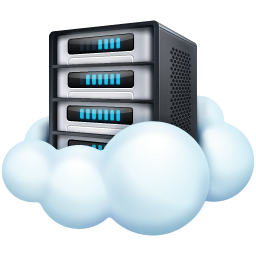Have you heard of cloud servers? Many businesses are shifting to using cloud servers for their data storage and computing needs. But what exactly are cloud servers? Why are they becoming so popular? And how can you choose the best cloud server for your business? Let's dive in.
What Are Cloud Servers?
A cloud server is a virtual server that is hosted on a cloud computing infrastructure. Instead of being hosted on a physical server, a cloud server is hosted on a network of virtual servers that are connected to each other. This means that when one virtual server goes down, another one can take over, ensuring that your website or application stays online.

Cloud servers are also scalable, meaning that you can easily increase or decrease your server resources as your business needs change. This can help you save money by only paying for the resources that you need.
Many cloud servers also come with features like automatic backups, load balancing, and content delivery networks (CDNs), which can help improve your website or application's performance and security.
Why Are Cloud Servers Becoming Popular?
Cloud servers are becoming popular for several reasons:
- Cost-effectiveness: Cloud servers are often more cost-effective than traditional physical servers, especially for smaller businesses. With cloud servers, you only pay for what you use, which can help you save money on server resources.
- Scalability: As your business grows, you can easily scale your cloud server resources up or down based on your needs. This can help you avoid having to purchase and maintain expensive physical servers.
- Reliability: Cloud servers are often more reliable than traditional physical servers because they are hosted on a network of servers. If one server goes down, another one can take over, ensuring that your website or application stays online.
- Security: Many cloud servers come with advanced security features like firewalls and intrusion detection and prevention systems (IDPS) that can help keep your data secure.
- Flexibility: Cloud servers are flexible and can be used for a variety of purposes, including web hosting, application hosting, and data storage.
How to Choose the Best Cloud Server for Your Business
When choosing a cloud server for your business, there are several factors you should consider:
1. Performance
The performance of your cloud server is critical because it can impact your website or application's speed and availability. Look for a cloud server with high-speed SSD storage, fast processors, and plenty of memory.
2. Reliability
Your cloud server should be reliable, with a 99.9% uptime guarantee. Look for a cloud server provider that has multiple data centers and redundant infrastructure to ensure that your website or application stays online.
3. Scalability
As your business grows, your cloud server should be scalable, allowing you to easily add more resources as needed. Look for a cloud server provider that allows you to easily upgrade or downgrade your server resources.
4. Security
Your cloud server should be secure, with advanced security features like firewalls, IDPS, and SSL certificates. Look for a cloud server provider that offers regular security updates and patches.
5. Support
Your cloud server provider should offer excellent support, with 24/7 technical support and a knowledgeable support team. Look for a cloud server provider that offers a variety of support channels, including email, phone, and live chat.

Tips and Ideas for Using Cloud Servers
Here are some tips and ideas for using cloud servers:
1. Host Your Website on a Cloud Server
If you have a website, consider hosting it on a cloud server. Cloud servers can offer faster website speeds, better website security, and more reliability than traditional physical servers.
2. Use a Cloud Server for Development and Testing
Cloud servers can be a cost-effective solution for development and testing environments. You can easily spin up and down servers as needed, and you only pay for the resources that you use.
3. Use a Cloud Server for Data Storage
Cloud servers can be a great solution for data storage, especially if you have a lot of data to store. With cloud servers, you can easily scale your storage as your needs change.
4. Use a Cloud Server for Disaster Recovery
Cloud servers can be a great solution for disaster recovery because they offer automatic backups and can easily switch to a backup server if needed.
5. Use a Cloud Server for Machine Learning and AI
Cloud servers can be used for machine learning and AI workloads because they offer high-performance computing resources that can be scaled up or down as needed.
How to Change CPU Priority Level in Windows 10 on a Cloud Server
If you're using a cloud server with Windows 10, you may want to change the CPU priority level to improve performance. Here's how:
Step 1: Open the Task Manager
Press "Ctrl + Shift + Esc" to open the Task Manager.
Step 2: Go to the Details Tab
Click on the "Details" tab in the Task Manager.
Step 3: Select the Process
Select the process that you want to change the CPU priority level for.
Step 4: Right-click on the Process
Right-click on the process and hover over "Set Priority."
Step 5: Choose the Priority Level
Choose the CPU priority level that you want to set for the process.
By following these steps, you can change the CPU priority level in Windows 10 on your cloud server to improve performance.
Conclusion
In conclusion, cloud servers are a cost-effective, scalable, and reliable solution for businesses of all sizes. When choosing a cloud server for your business, consider factors like performance, reliability, scalability, security, and support. And don't be afraid to experiment with different ways to use cloud servers, from hosting your website to using them for machine learning and AI workloads.